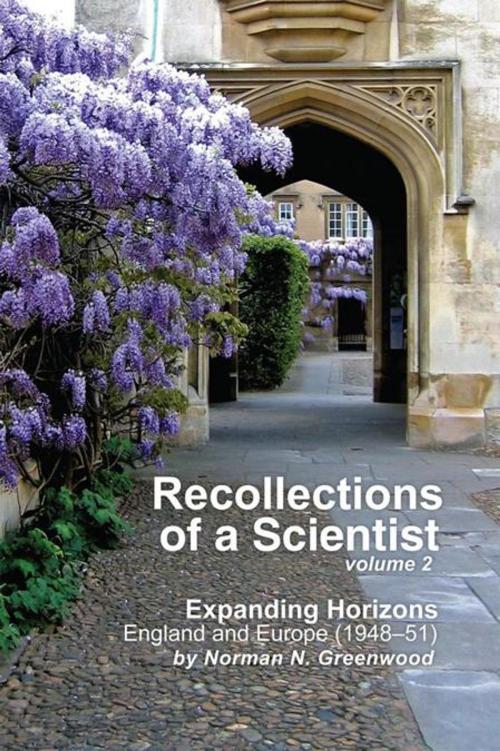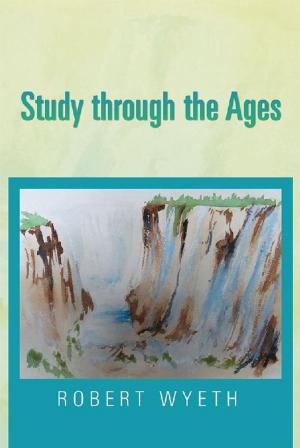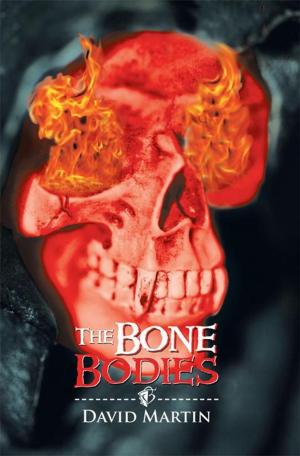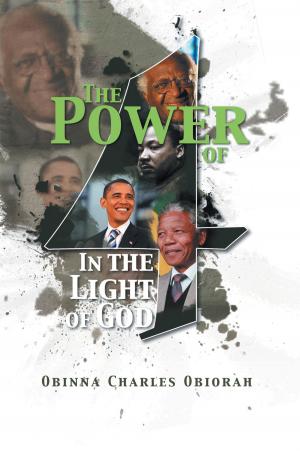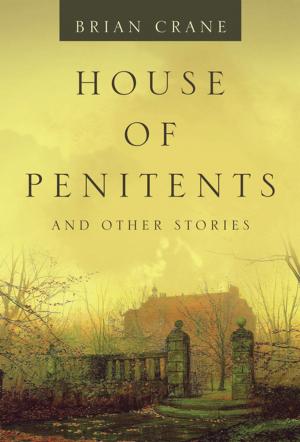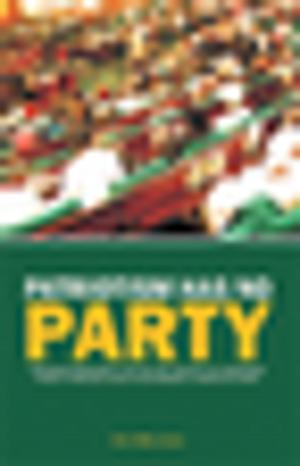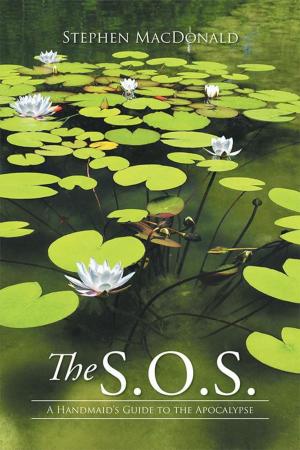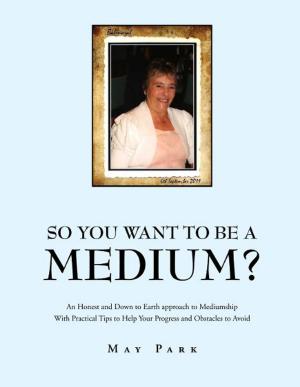Recollections of a Scientist Volume 2
Expanding Horizons: England and Europe (1948–51)
Biography & Memoir| Author: | Norman N. Greenwood | ISBN: | 9781477151877 |
| Publisher: | Xlibris UK | Publication: | October 15, 2012 |
| Imprint: | Xlibris UK | Language: | English |
| Author: | Norman N. Greenwood |
| ISBN: | 9781477151877 |
| Publisher: | Xlibris UK |
| Publication: | October 15, 2012 |
| Imprint: | Xlibris UK |
| Language: | English |
Recollections of a Scientist, Volume 2 Expanding HorizonsEngland and Europe (1948-1951) This illustrated book is the second volume of Memoirs of a distinguished, internationally renowned scientist, Professor Norman N. Greenwood, FRS. It takes up the story of his life from the first moment he arrived in England as a research student from Australia in September 1948. Term had not yet started in Cambridge so he spent a hectic first month visiting and getting to know the members of his parents families who lived in London and Brighton. He also spent some time in the delightful countryside around Guildford and the Surrey Downs with a fellow passenger, following a shipboard romance during the long trip from Melbourne. He then visited the recently inaugurated Atomic Energy Research Establishment at Harwell in Berkshire (where his former research supervisor was now a senior scientist in the chemistry division) and had the exciting experience of seeing Europes first, recently commissioned nuclear reactor in operation. In Cambridge he took up residence in a set of rooms in Sidney Sussex College and began research discussions with Professor Harry Emelus, FRS the most distinguished inorganic chemist in the UK at that time. The unique charms of the Cambridge Colleges and the arcane procedures of the University itself are affectionately described, and at various places throughout the book there are graphic representations of life in Cambridge in the late nineteen-forties. An early example is his description of the Universitys decision to allow, for the first time in its seven centuries of existence, women to be awarded substantive degrees (rather than merely titular ones). The first such degree to be conferred on a woman, in an appropriately grand ceremony, was on the enormously popular Queen Elizabeth, consort of King George VI (later known as The Queen Mother). At a more mundane level, post-war austerity necessitated the rationing of food and many other items at levels that were even more severe than those in operation during the war (WW2). The list given of a weeks rations is a salutary reminder of those days. Norman is a past master at describing in accessible terms the research work that he was doing in the laboratory and its wider significance. He also gives perceptive descriptions of the international group of research chemists working in the laboratory at that time and of many members of staff. As earlier in Melbourne, he made the most of opportunities to attend lectures by famous visitors and distinguished members of the University in other departments of the University. There are memorable descriptions of a course of lectures given over two terms by Bertrand Russell on Philosophy, and numerous other lectures by Science Nobel Laureates. Vacations provided a wonderful opportunity to visit other places in England and Europe. Just before Christmas 1948 he went with the Oxford and Cambridge Ski Clubs to Sestriere in the Italian Alps, a splendid location for skiers of all abilities. Directly following this, and with virtually no money left, he spent a memorable Christmas and New Year on his own exploring the wonders and glories of Paris. And what wonders he describes. He had a room in the Latin (student) Quarter at 350 francs per night (i.e. 35p or 0.35) for bed and breakfast at the then exchange rate of 1 ~ 1000 francs. The next vacation, at Easter, was to southern Scandinavia to visit his sister, Margaret who had married a Swede in 1946 and was living on a small island in the Baltic Sea just off the coast near Karlskrona. [Volume 1 of these Recollections was dedicated to her on the occasion of her ninetieth birthday in 2012.] The journey was also memorable for a different reason for it was on the Flying Scot, en route to Newcastle upon Tyne to catch the ferry to Bergen in Norway, that he first met Kirsten Rydland whom he later married in 1951. [This Volume 2 is dedicated to her.] Norman was cl
Recollections of a Scientist, Volume 2 Expanding HorizonsEngland and Europe (1948-1951) This illustrated book is the second volume of Memoirs of a distinguished, internationally renowned scientist, Professor Norman N. Greenwood, FRS. It takes up the story of his life from the first moment he arrived in England as a research student from Australia in September 1948. Term had not yet started in Cambridge so he spent a hectic first month visiting and getting to know the members of his parents families who lived in London and Brighton. He also spent some time in the delightful countryside around Guildford and the Surrey Downs with a fellow passenger, following a shipboard romance during the long trip from Melbourne. He then visited the recently inaugurated Atomic Energy Research Establishment at Harwell in Berkshire (where his former research supervisor was now a senior scientist in the chemistry division) and had the exciting experience of seeing Europes first, recently commissioned nuclear reactor in operation. In Cambridge he took up residence in a set of rooms in Sidney Sussex College and began research discussions with Professor Harry Emelus, FRS the most distinguished inorganic chemist in the UK at that time. The unique charms of the Cambridge Colleges and the arcane procedures of the University itself are affectionately described, and at various places throughout the book there are graphic representations of life in Cambridge in the late nineteen-forties. An early example is his description of the Universitys decision to allow, for the first time in its seven centuries of existence, women to be awarded substantive degrees (rather than merely titular ones). The first such degree to be conferred on a woman, in an appropriately grand ceremony, was on the enormously popular Queen Elizabeth, consort of King George VI (later known as The Queen Mother). At a more mundane level, post-war austerity necessitated the rationing of food and many other items at levels that were even more severe than those in operation during the war (WW2). The list given of a weeks rations is a salutary reminder of those days. Norman is a past master at describing in accessible terms the research work that he was doing in the laboratory and its wider significance. He also gives perceptive descriptions of the international group of research chemists working in the laboratory at that time and of many members of staff. As earlier in Melbourne, he made the most of opportunities to attend lectures by famous visitors and distinguished members of the University in other departments of the University. There are memorable descriptions of a course of lectures given over two terms by Bertrand Russell on Philosophy, and numerous other lectures by Science Nobel Laureates. Vacations provided a wonderful opportunity to visit other places in England and Europe. Just before Christmas 1948 he went with the Oxford and Cambridge Ski Clubs to Sestriere in the Italian Alps, a splendid location for skiers of all abilities. Directly following this, and with virtually no money left, he spent a memorable Christmas and New Year on his own exploring the wonders and glories of Paris. And what wonders he describes. He had a room in the Latin (student) Quarter at 350 francs per night (i.e. 35p or 0.35) for bed and breakfast at the then exchange rate of 1 ~ 1000 francs. The next vacation, at Easter, was to southern Scandinavia to visit his sister, Margaret who had married a Swede in 1946 and was living on a small island in the Baltic Sea just off the coast near Karlskrona. [Volume 1 of these Recollections was dedicated to her on the occasion of her ninetieth birthday in 2012.] The journey was also memorable for a different reason for it was on the Flying Scot, en route to Newcastle upon Tyne to catch the ferry to Bergen in Norway, that he first met Kirsten Rydland whom he later married in 1951. [This Volume 2 is dedicated to her.] Norman was cl
